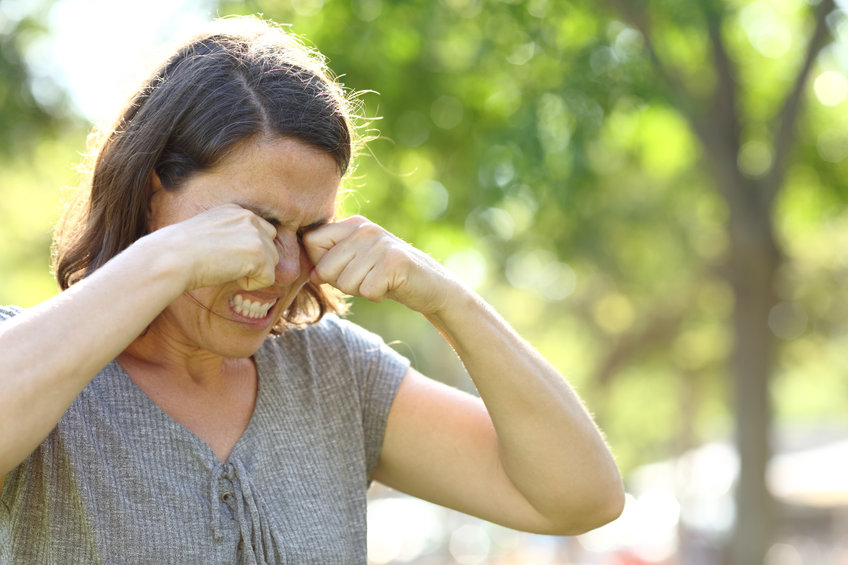Dry eye syndrome is one of the most common eye conditions worldwide. It is estimated that nearly 16 million Americans suffer from chronically dry eyes1. There are various causes ranging from structural to inflammatory, but the two most common types are aqueous deficient and evaporative.
Aqueous (water) deficient dry eye is when your eyes simply don’t make enough tears to keep the surface of your eye lubricated. This can cause symptoms such as scratchiness, grittiness, burning, or feeling like there is something in your eye. At home remedies include drinking more water, rest, and limiting exposure to ceiling fans, air conditioning, wind, and dust. As these strategies may help, often the use of eye drops is recommended. Artificial tears are drops that mimic your body’s natural tears and help to replace what the eye is missing. There are a dizzying number of brands and styles of drops. Even as an optometrist it is easy to get lost in the eye care section of your local grocery store! Key words to focus on are rewetting, lubricating, and tears. Reputable brands such as “Systane” and “Refresh” are good places to start. Generic eye drops are available, and effective; however, I’ve found the brand names to offer patients greater lasting relief. Try using these 3-4 times per day when your eyes are feeling particularly irritated.
Evaporative dry eye causes some of the same symptoms as Aqueous Deficient, but for a different reason. In this form of dry eye, your body makes enough tears, but the tears are of low quality, and evaporative too quickly from the eye. Our tears are made up of both water and oil layers, and it’s important that we have enough of both to keep enough water, and for LONG enough, that are our eyes are comfortable and healthy. If you suffer from this type of dry eye, you may find yourself having to blink more often to keep your eyes comfortable, unstable vision, eyelid irritation and redness. Treatment for this form involves restoring your eye’s natural lipid (oil) later. This can be done by using a warm compress, Omega-3 fatty acids, and oil based artificial tears. I recommend purchasing a commercial warm compress to use once or twice daily for patients suffering from evaporative dry eye. When used as directed, a warm compress can help restore your natural ability to make high quality tears. Omega-3 fatty acids are also an important supplement. Try to get at least 1000mg of Omega-3’s per day, making sure to check with your doctor first, as any supplement has the ability to interact with medications. Finally, specialty artificial tears designed specifically for this type of dry eye are available over the counter by the same manufacturers listed above.
Most of these eye drops will come in a regular bottle, or vials. The vials are preservative free and can be used as many times per day as a patient feels necessary. It is recommended to keep the dosing to at most 6 times per day with the regular bottle, as the preservatives can cause irritation to the eye if overused. As with all medical advice given, there is no one size fits all treatment for every patient. Dry eyes can often be managed without drugs and in-office treatments; however, some patients may require more advanced therapies. Dry eye syndrome is just one of the many causes of dry irritated eyes, and I recommend seeking the advice of an eye care provider if your symptoms are constant or include any pain or changes in vision.
Save up to 80% on the cost of your prescriptions at your local pharmacy with EasyDrugCard.com. Download your free drug card and begin saving today.
References:












